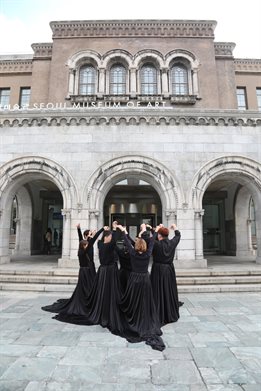Participatory, inclusive arts practice can combat isolation, prejudice and exclusion. It provides meeting points, public platforms and common experience for diverse groups of people. Importantly, though, the best examples move beyond arts participation for health interests alone, and challenge simple art-as-service models. Alice Fox's research at the University of Brighton is establishing a deeper understanding of truly inclusive practice, evolving the concept of expanded listening, a way of being with and responding to another person.
Since 2004, Alice Fox has led research that has revealed the valuable contributions that learning-disabled artists bring to the cultural sector. Challenging a dominant arts-as-service model in disability arts, Fox’s work has changed the understanding and delivery of inclusive arts practices in the UK and overseas. At the heart of Alice Fox’s approach is an ‘aesthetic of exchange’: the collaborative development of competence, knowledge and skills.
Early developments of inclusive arts practice
Her early research was into methods of co-creation with disengaged and marginalised communities, paying particular attention to collaboration between artists with and without learning disabilities and extending and sharing ideas beyond words. The work confronted human fragility and discovered new forms of representation and led to the realisation of high-quality artwork, creative experiences and new insights.
Side-by-Side (2013) was the first major international inclusive arts exhibition, delivered in partnership with the Southbank Centre and the Brighton-based learning-disabled artists’ collective, Rocket Artists. The exhibition created a forum for discussion about the nature and legitimacy of inclusive artistic practice and paved the way for further site-specific performances as well as inclusive, creative methods of interacting with museum and gallery collections.

As artist in residence at the Korean Disability Arts and Culture Centre (KDAC) in Seoul, Alice Fox brought together four South Korean artists with learning disabilities alongside four artists in residence to make a site-specific performance work, ‘In-Out’, in response to the collections and architecture of the public foyer space in the Seoul Museum of Art.